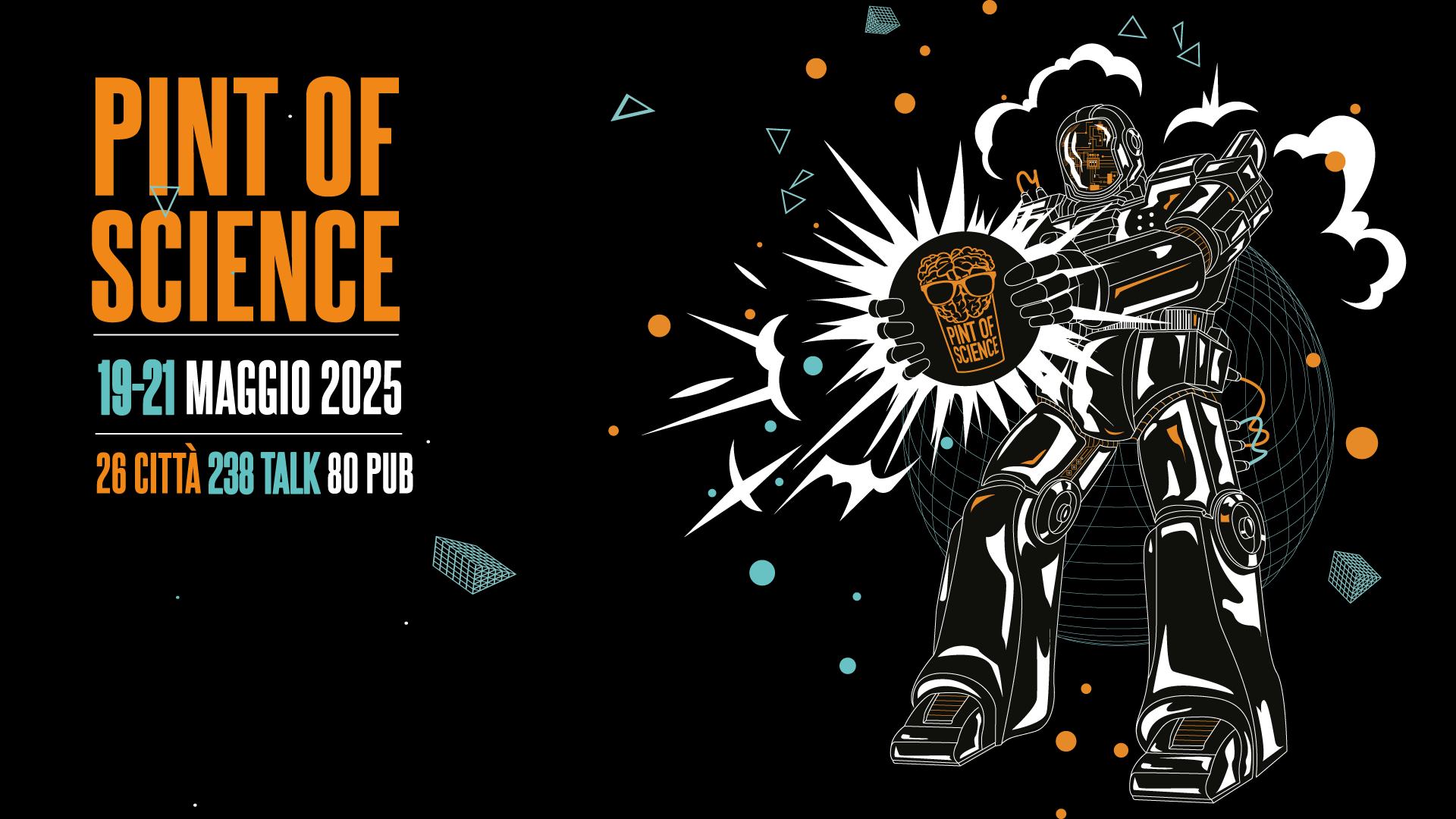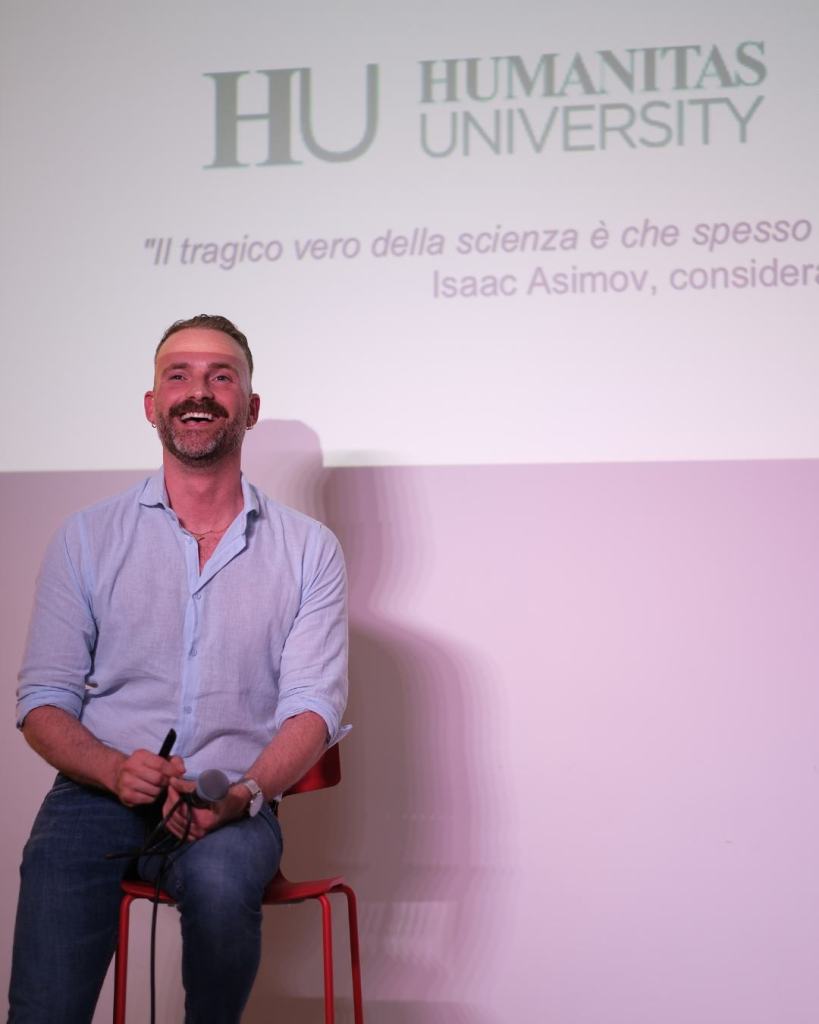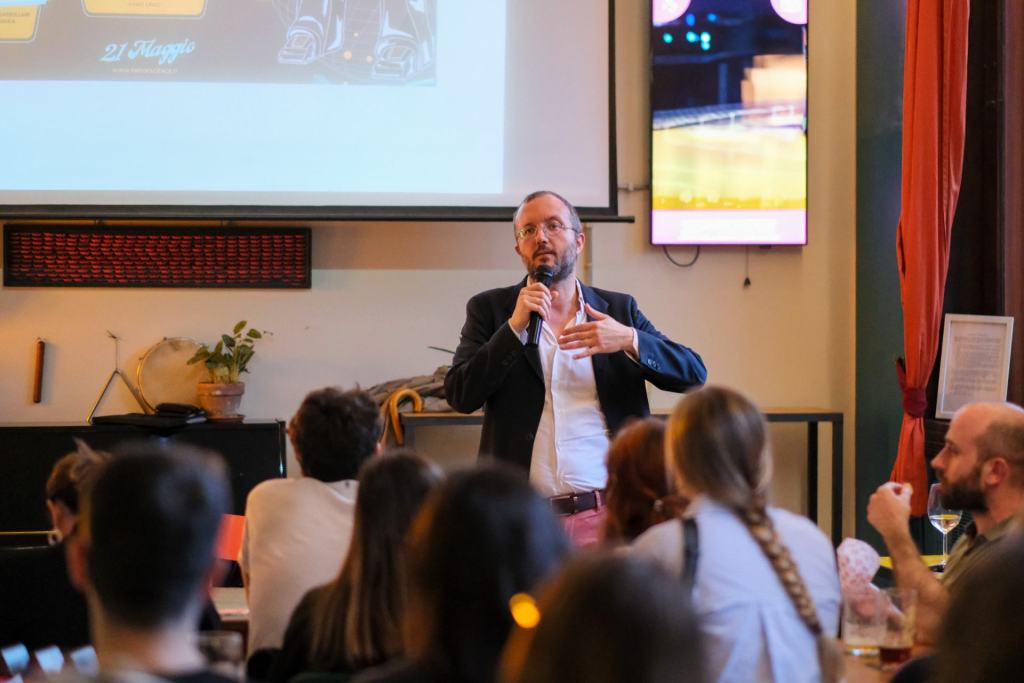A toast to science: Humanitas University at Pint of Science

From 19th to 21st May 2025, Humanitas University participated for the third consecutive year in Pint of Science, the international festival that takes science out of laboratories and makes it accessible to the general public in an informal setting. The event, which involved 25 Italian cities and more than 75 pubs, including seven in Milan, provided a unique opportunity for dialogue between researchers and citizens.
Humanitas University’s commitment to public engagement is reflected in its active participation in initiatives that foster direct interaction between science and society. Events like Pint of Science, the Genoa Science Festival, BergamoScienza, and the European Researchers’ Night are part of a broader effort to share cutting-edge scientific knowledge with the public. The aim is twofold: on one hand, to stimulate curiosity and scientific awareness in society; on the other, to demonstrate that science is not a distant, abstract field but a dynamic, tangible discipline that can enhance everyday life.
In this edition of Pint of Science, Humanitas hosted two events rich in content and high in public outreach impact.

The first, titled “The Dopamine Circuit and the Anticipation of Pleasure,” was held on Monday, 19th May, at HUG. Sebastiano Bariselli, a neuroscientist with extensive international experience and currently a researcher at the Humanitas labs, took the audience on a journey into the human brain. Through clear and engaging storytelling, Bariselli explained how dopamine, a key molecule in the brain’s reward circuit, influences everyday behaviors such as the desire to eat chocolate or binge-watch a TV series. He also delved into the mechanisms underlying addiction, emphasizing the importance of understanding and managing these processes for mental well-being.
The second event, titled “Eggshells: Evolution, Power, and Peril of Pregnancy,” took place on Tuesday, 20th May, at Ostello Bello Grande. Delivered in English by Marinos Kallikourdis, an associate professor of Immunology at Humanitas University and head of a research group at the Humanitas Research Hospital, the session explored the evolution of pregnancy in mammals and its impact on the immune system. Kallikourdis illustrated how the transition from egg shells to permeable placentas marked a pivotal moment in the evolution of our species, reshaping immune system function. This transformation has profound implications for understanding modern diseases and human biological development.

Participating in Pint of Science provided Humanitas with another opportunity to show that science can be not only comprehensible but also inspiring and approachable. Sharing scientific knowledge, listening to the public, and creating moments of exchange are integral to the mission of an institution that places research and innovation at the service of society. Events like these are fundamental building blocks for fostering a scientifically aware culture where research becomes a driving force for growth and innovation across the entire community.